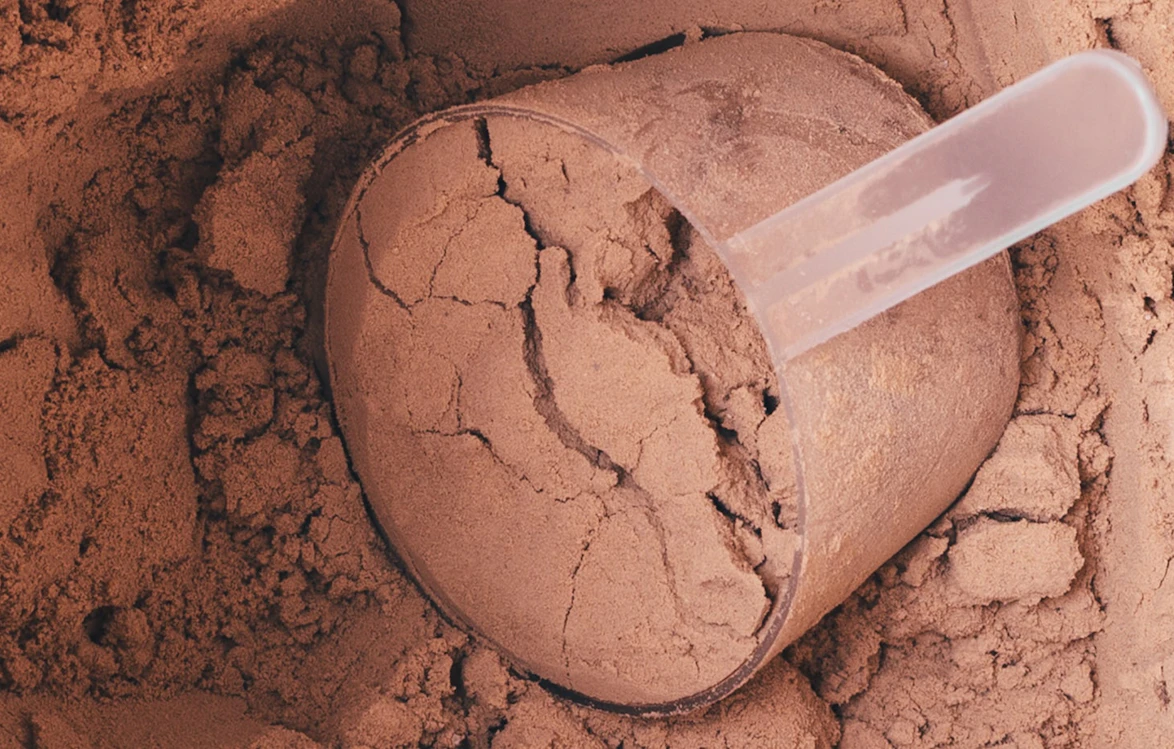Time to read: 5 min
Pea protein vs whey
Your body needs sufficient protein to build muscle and recover from (strength) training or intense physical activity. An easy way to get enough protein in your diet is to use a protein powder or protein supplement.
A popular protein supplement that is widely popular with strength athletes and is regarded as the best protein supplement on the market is whey protein.
But is whey protein actually good for you? And is whey actually your best and only option or is there an equivalent or even better alternative, such as pea protein?
Whey protein
Whey protein is one of two types of protein that comes from milk. It is a by-product that is created during the process of milk being turned into cheese.
Over the last decades whey protein has become the best-selling (due to good marketing) and most used protein supplement in the fitness industry today.
But is whey protein actually good for you? Although whey protein is usually well absorbed by the body, it does contain milk proteins and lactose (milk sugar) for which a large proportion (75%) of the global population has an intolerance.
People with sensitivities or an intolerance cannot tolerate whey protein very well and can cause all kinds of benign, but discomfortable problems such as bowel issues, flatulence, skin rash and bloating.
More and more people are therefore avoiding dairy products and will have to look for an alternative to whey. But what is the best alternative? Is there another type of protein that works at least as well or perhaps even better than whey protein?
No whey? No problem!
A recent study published in The Journal of the International Society of Sports Nutrition has shown that both the use of pea protein and the use of whey gives the same result for building muscle [1,2].
In a double-blind, placebo-controlled study (RCT), 161 men were randomly divided into three groups: whey protein, pea protein and a placebo group. All men then followed a strength training program for 12 weeks.
At the end of the study it showed that all groups benefited from strength training with very little difference between the three groups. Focus on the weakest participants in each group however, showed a significant difference between the group with the pea protein and the placebo group.
Men in the pea protein group had a 20.2% increase in muscle thickness of the biceps brachii compared to 8.6% in the placebo group, while the whey group showed an increase of 15.6%.
There was no statistical difference between the whey group and the pea protein group. The scientists performing this study therefore came to the following conclusion:
"Since no difference was achieved between the two protein groups, vegetable proteins could be used as alternative to whey-based dietary products".
The benefits of pea protein
Pea protein is not only a perfect source of protein for muscle building and recovery, but there are also many other advantages and healthy benefits to pea protein.
- It does not contain cholesterol and saturated fat
- It helps with satiety
- It can help to lower blood pressure
- It can contribute to the lowering of cholesterol and triglyceride levels in the blood
- It doesn't cause any bloating
- It doesn't cause any skin problems
- It doesn't cause abdominal cramps or bowel discomfort
Conclusion
Pea protein is an excellent replacement for whey protein. If we compare whey protein to pea protein there is no clear difference between these two protein supplements when it comes to building muscle and recovery.
Despite the fact that many people use whey protein, it's debatable whether it is actually properly absorbed by their body. Many people have an intolerance to whey and it can also cause all kinds of problems and discomfort.
Pea protein doesn't cause these problems and has many other advantages over whey.
Pea protein is an excellent replacement for whey protein and it is no surprise that pea protein is becoming more and more popular amongst athletes as a healthy plant-based alternative.
